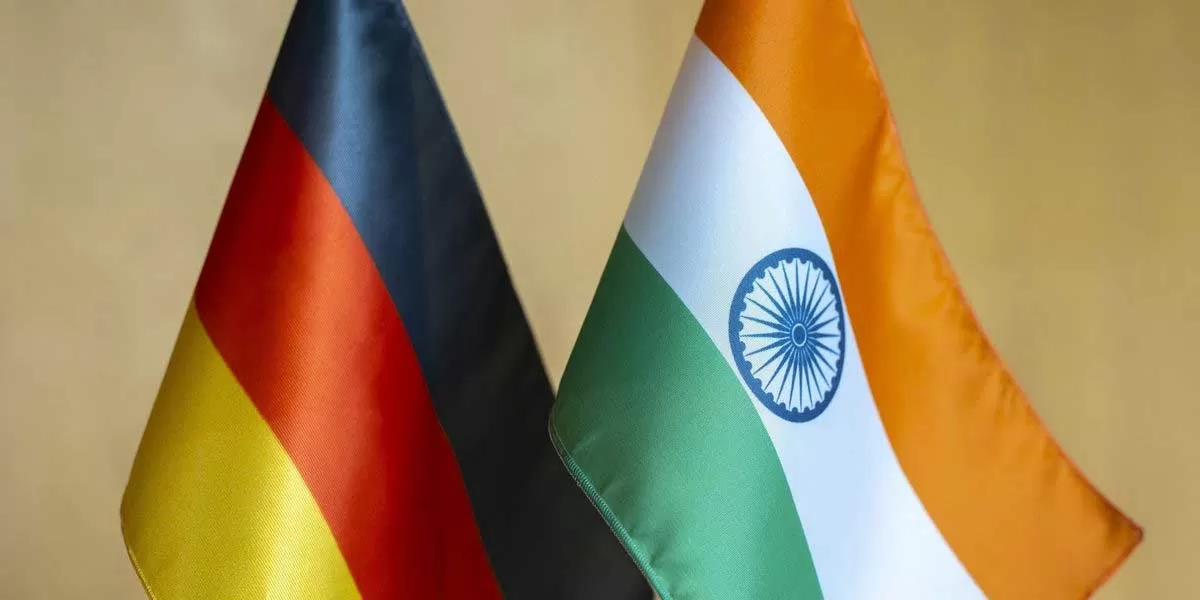India and Germany have established a strategic partnership, maintaining strong bilateral and trade ties since 2000. Recently, both nations signed a Memorandum of Arrangement to facilitate mutual logistics support and exchange between their armed forces. Germany is also India’s largest trading partner in Europe and has consistently ranked among India’s top ten global partners. Various initiatives illustrate this partnership, including the Market Entry Support Programme and the “Make in India Mittelstand” (MIIM) aimed at supporting German small and medium-sized enterprises (SMEs) and family-owned businesses in India. Additionally, Messe Stuttgart, Germany’s largest organizer of trade fairs, congresses, and events, is assisting India in its vision of becoming a developed economy. During the second edition of LogiMAT India 2025, the world’s largest logistics and infrastructure satellite show organized by Messe Stuttgart India in Mumbai, Rajesh Nath, Managing Director of the German Engineering Federation (VDMA) India Office, emphasized the significant potential for both countries to establish new partnerships in the logistics sector.
Speaking about LogiMAT India and its role in revolutionising the logistics sector and strengthening ties, Nath emphasised, “We are optimistic about its growth potential. Exhibitions like LogiMAT India provide an excellent platform for technology suppliers and customers to connect. They serve as a meeting point for industry players, and as the show grows in size, it offers more opportunities for Indian companies to interact with German and European firms and learn about the latest technological advancements. We are confident that the exhibition will foster growth in Indo-German trade. As VDMA, we are excited to partner with Messe Stuttgart for this event, contributing to the promotion of Indo-German trade in the engineering sector.”
In an interaction with the media, Nath said, “Indo-German trade has been developing very well, with an annual growth of nearly 8 to 10 per cent. Currently, this trade amounts to approximately 30 billion euros, and the growth has been impressive. We expect bilateral trade to maintain this growth rate in the coming period. A key aspect of this bilateral trade is the machinery sector, which constitutes about 32 per cent of the total trade. Exports of German machinery to India have reached approximately Euro 4.5 billion, reflecting a growth of around 10 per cent compared to the previous year. Notably, trade is not one-sided; we are also witnessing robust growth in exports from India to Germany. For the first time, exports of Indian machinery and components to Germany have surpassed the Euro 1 billion mark, marking an impressive growth of about 18 per cent.”
This gives us confidence in the continued expansion of the machinery sector. Logistics, including intralogistics and warehousing, plays a critical role in this trade. India is making substantial investments in infrastructure, with a budget announcement of around 11.11 trillion dollars dedicated to infrastructure development. Given the rapid growth of the e-commerce industry, effective warehousing and advanced warehousing technologies are becoming increasingly important. This is where German companies can offer their expertise and technology, particularly in the warehousing and intralogistics sectors. India needs to enhance efficiency and productivity, and the right technologies and levels of automation can significantly contribute to this growth. This sector will be an important component of Indo-German trade, particularly in logistics, intralogistics, and warehousing, he added.
Emphasising Germany and India’s role in transforming the logistics sector together through events like LogiMAT India, Managing Director of Intralogistics and Material Handling Department in VDMA, Sascha Schmel said, “India is clearly a booming market, as evidenced by the rising GDP figures. This growth applies to both production and supply chains, which are closely related to intralogistics and material handling. Germany’s Interest in the Indian market is increasing daily, supported by the developments making headlines in India. Additionally, the presence of the German pavilion, sponsored by the German government, serves as proof of the high level of interest and involvement in this market.”
The second edition of LogiMAT India 2025, India's largest and most extensive logistics exhibition and the highly anticipated satellite trade fair kicked off with a gala event on February 13th at the Bombay Exhibition Centre in Mumbai. This three-day event is poised to bring industry stalwarts together to network with peers, explore new business opportunities, expand into new markets, and maximise brand visibility, and aims to revolutionise the logistics landscape in India through cutting-edge innovations in warehouse automation, smart delivery systems, and supply chain solutions.





















